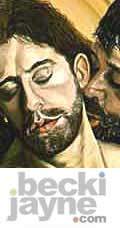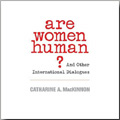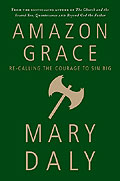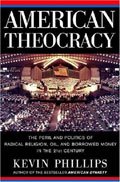
Prediction time!
John Murtha was right:
I expect a significant troop withdrawal. [The Bush WH is] trying to find a way to do this.
Just one caveat. The Bush Administration has already found a way to withdraw troops by the midterm elections to boost the GOP's precious voter turnout. The trick for the GOP was to absolve itself of the criticism currently aimed at Democrats as "cut and run" cowards for having suggested redeployment. Dem-bashing instigated from the RNC machine and comrades in the con-apparatchiki has shifted into full throttle. 'Tis the political season.
Such a maneuver called for the cunning and calculation of a 21st century Machiavellian prince, no problem in the Rove camp. It's simple. Just out-source the task. I wondered when Bush made his surprise visit to Iraq if troop withdrawals by November 2006 was the reason for his trip. His corn pone smile and reports of a renewed strut in his step told me, yes.
On cue today, Iraq's national security advisor, Mowaffak Al-Rubaie, writes in WaPo, The Way Out of Iraq: A Road Map. With emphasis:
With the governors of each province meeting these strict objectives, Iraq's ambition is to have full control of the country by the end of 2008. In practice this will mean a significant foreign troop reduction. We envisage the U.S. troop presence by year's end to be under 100,000, with most of the remaining troops to return home by the end of 2007.
Got that? By the end of 2006, and you can bet it will come miraculously in October, 30,000 or more of the 130,000 U.S. troops in Iraq will come home.
Mowaffak Al-Rubaie goes on to articulate some of the same reasons Democrats have given for redeployment: to deflate the insurgency, validate the Iraqi government's authority, involve Muslim neighbors in rebuilding Iraq, and remove U.S. soldiers as a negative symbol and target for the insurgents:
The eventual removal of coalition troops from Iraqi streets will help the Iraqis, who now see foreign troops as occupiers rather than the liberators they were meant to be. It will remove psychological barriers and the reason that many Iraqis joined the so-called resistance in the first place. The removal of troops will also allow the Iraqi government to engage with some of our neighbors that have to date been at the very least sympathetic to the resistance because of what they call the "coalition occupation." If the sectarian issue continues to cause conflict with Iraq's neighbors, this matter needs to be addressed urgently and openly -- not in the guise of aversion to the presence of foreign troops.
Moreover, the removal of foreign troops will legitimize Iraq's government in the eyes of its people. It has taken what some feel is an eternity to form a government of national unity. This has not been an easy or enviable task, but it represents a significant achievement, considering that many new ministers are working in partisan situations, often with people with whom they share a history of enmity and distrust. By its nature, the government of national unity, because it is working through consensus, could be perceived to be weak. But, again, the drawdown of foreign troops will strengthen our fledgling government to last the full four years it is supposed to.
While Iraq is trying to gain its independence from the United States and the coalition, in terms of taking greater responsibility for its actions, particularly in terms of security, there are still some influential foreign figures trying to spoon-feed our government and take a very proactive role in many key decisions. Though this may provide some benefits in the short term, in the long run it will only serve to make the Iraqi government a weaker one and eventually lead to a culture of dependency. Iraq has to grow out of the shadow of the United States and the coalition, take responsibility for its own decisions, learn from its own mistakes, and find Iraqi solutions to Iraqi problems, with the knowledge that our friends and allies are standing by with support and help should we need it.
Bush couldn't have found a better Iraqi political operative for the job that Mowaffak Al-Rubaie. Newsweek detailed his expertise (with emphasis):
He's a critical link to key members of Iraq's powerful Shiite clergy: Grand Ayatollah Hussein al-Sadr in Baghdad and Grand Ayatollah Ali Sistani in Najaf, the holiest city in Iraq. Without the tacit support of the Shiites, who make up a 60 percent majority of the population and look to these ayatollahs for guidance, the American occupation of Iraq would be unsustainable.
Soft-spoken, bearded, bespectacled and courtly, al-Rubaie, 55, was the international spokesman for one of the most feared terrorist organizations in the Middle East during the 1980s, the Iraqi Dawa Party. But he's also a prosperous British-educated physician. He practiced medicine in London for the better part of three decades. (His British patients, for the most part, knew him by his Anglicized name, Mow Baker.) While pious, he is also perfectly comfortable in secular Western society. "Shall we dine and not wine?" he used to joke with guests when inviting them to dinner at his house. And while Western policies toward Iraq went through many changes, al-Rubaie's goal was always consistent: the overthrow of Saddam Hussein.
American officials in Iraq are well aware of al-Rubaie's ability to navigate in both worlds; when President Bush landed in Baghdad for Thanksgiving dinner, clearly he'd been briefed. As al-Rubaie remembers their encounter, the president pointed at him and said, "Dr. al-Rubaie, I want you to convey this message to Mr. Sistani. Tell him that I pray to the same god he prays to... Tell Sistani I have nothing but praise for your religion. I have many millions of Muslims in my country back home."
Ayatollah Sistani in Najaf, it should be noted, tolerates the American presence in Iraq, but does not talk to Americans directly. Ayatollah Hussein al-Sadr does talk to the Americans, but as one political operative at the Coalition Provisional Authority explained, the ayatollah in Baghdad "let it be known that Mowaffak is the dearest of all to his heart."
"Access is power," says the same official, "and if you have access at the Oval Office and in Najaf, that's not bad."
When al-Rubaie met the captured Saddam this month, his first question was why the dictator murdered two revered ayatollahs from the al-Sadr family. Saddam responded with a coarse joke. Al-Rubaie has since led the call to put Saddam on trial in a matter of weeks. While it's unlikely the Americans will bend to that particular demand, many others will surely follow, probably growing more contentious as occupied Iraq tries to become, truly, liberated Iraq. And al-Rubaie is likely to be at the forefront of political developments.
But what kind of Iraq does he envision? Would it be a sort of postmodern version of Khomeini's Iran? He insists not.
Al-Rubaie says the Islamist movement has come full circle. In Algeria and Sudan, for example, "we saw a tyranny in the name of Islam," he says. "This is very dangerous—politicizing religion or religicizing politics." In purely practical terms, al-Rubaie explains, Iraq is "like a bunch of flowers. There are Sunnis here, Christians, Muslims, Turkomans and Orthodox, Kurds, Assyrian. So what religion do you impose? The diversity of Iraqi society should dictate democracy and decentralization. That's the alternative vision to Saddam's tyranny of fear."
In the meantime, like most Iraqis, he wants to see his countrymen taking a greater role in bringing order to their homeland, while the Coalition forces step to the rear, ready to back up the regime, [sounds like redeployment, no?] but interacting as little as possible with the people. "The Americans don't understand the culture, the different religions, the psychology," al-Rubaie says as he sits in his sparsely furnished office in the building that houses the Iraqi Governing Council.
A few days before, he says, he was given a full body search by American soldiers as he tried to enter the building—searched right down to the soles of his shoes. "This is humiliation in the eyes of our people," he says in frustration. Yet even while lobbying for greater Iraqi involvement in security matters, he warns that Washington shouldn't rush Iraqis into accepting full sovereignty: "People are not ready. People have not voted here for more than 50 years." Al-Rubaie speaks of the "Baathist virus" implanted by Saddam Hussein "in the software upstairs." "We need to rewrite the software," he says. "We need to rehabilitate the Iraqi people. This will take a long time."
And meanwhile al-Rubaie continues building his own personal constituency. Last summer the holy city of Karbala was draped with banners extolling his virtues. His clan, the al-Rubaie, is large and powerful, and he's worked hard to make sure he keeps its support. But politics remains a high-risk occupation. At least one other member of the Council has been shot dead; the driver of another member was killed when American soldiers opened fire on his car. And then there was the October attack on the Baghdad Hotel, when al-Rubaie himself was injured. Does he feel endangered? "I'm not afraid to die," he says, smiling. "Thank goodness I believe in the hereafter. So I am ready to go." If he survives—and that's a big if for any Iraqi politician—he could also be ready to rule.
Ah, Iraq's Mr. Cellophane to the rescue. Christopher Dickey at Newsweek offers more insight into Mowaffak al-Rubaie's clout, the kind of power an ol' political operative such as Bush would appreciate.
So while the right-wing pummels Murtha-Feingold-Kerry Democrats for advocating redeployment under the attack banner of cut and run, the Decider has already made the arrangements to withdraw a large portion of U.S. troops just in time for the midterm elections.
You heard it here first.
POST MORTEM UPDATE: When you're wrong, you're wrong. I was wrong. But the good news is, the electorate punished Republicans during the midterm elections for many reasons. But a big one was the war.























|